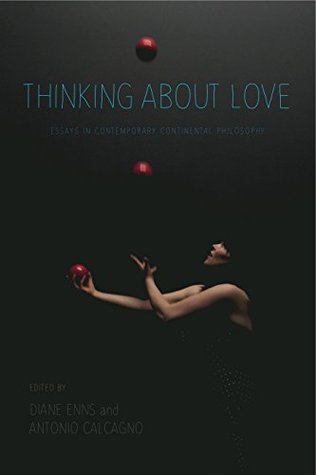Kindle Notes & Highlights
by
Diane Enns
Started reading
June 26, 2024
What if death, rather than barring us from an eternal love, actually saves our love for us? What if it were death that ensured, if not our love itself, at least its intensity? That is the wager of this essay.
“each person in a romantic we wants to possess the other completely; yet each needs the other to be an independent and nonsubservient person. Only someone who continues to possess a nonsubservient autonomy can be an apt partner in a joint identity that enlarges and enhances your individual one.”
There is a future to each moment:
“There is a kind of love—and for some it may be the only kind that qualifies as true love—that is historical precisely because it does not rigidly designate its object. . . . Such a love might be called dynamically permeable. It is permeable in that the lover is changed by loving and changed by truthful perception of the friend. . . . It is dynamic in that every change generates new changes, both in the lover and in interactions with the friend.”
Love is there in the recovery room, in the rhythm of my fingers tracing the path of your pain. There in the waiting room, the air rank with anxiety as we who wait for news shift in our chairs, mechanically sip weak coffee, and watch the clock.
I was the eye of love’s storm, willing the destruction of your suffering with iron determination. But my will, in the end, betrayed me. This was the source of my own pain: to caress your face, smooth your hair, bathe your body, yet remain unable to suffer in your place. But now I know: to love you was not to suffer in your place and so alleviate your pain. There is no substitution—this is the limit of love. I could not be your leg for you. I could not be your crutches. I could not absorb your pain to free you of it. I could not be your will to live or your excuse to live badly. I could only
...more
Derrida’s writing inevitably “involves thinking about ghostliness, about how things are haunted—by difference, by otherness.”
he never writes about love from a position of philosophical detachment and never seeks to make its secret visible.
“deconstruction is not only about acknowledging difference. It is also about being open to being altered in one’s encounter with difference.


